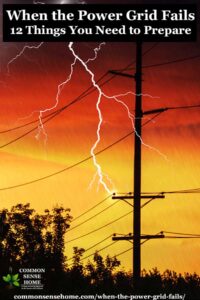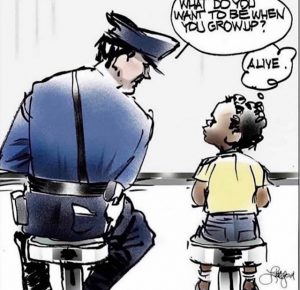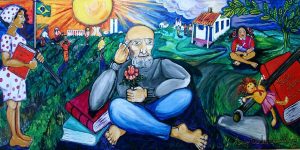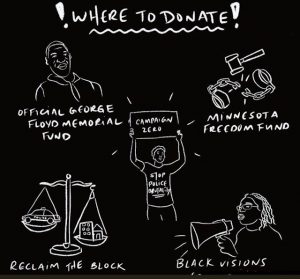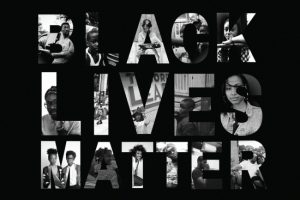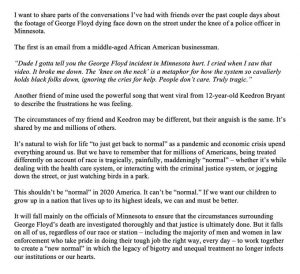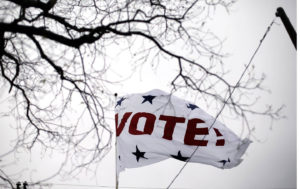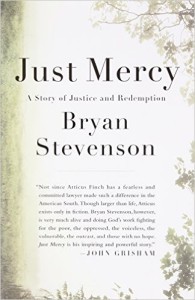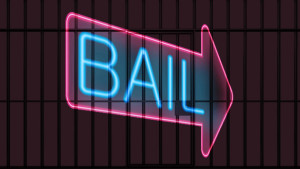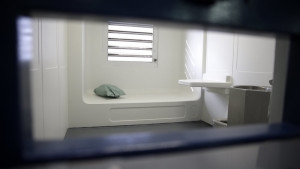John Oliver
23 Minute Must See Tutorial
November 9, 2021Last Week Tonight with John Oliver
“The physical generation of renewable energy isn’t really the problem here,” Oliver explained. “The key issue is the transmission of it. Basically, how do you get that energy from where it’s made, like a wind farm in Wyoming, to where it is needed, which could be a thousand miles away.”
The Guardian
The answer is transmission lines, “the absolute heart of our grid, and we’re going to need more of them”, said Oliver. But there are several difficulties to refreshed transmission lines, starting with location: building hundreds of miles of lines is a logistical nightmare, and local opposition to bigger towers can derail plans for years.
Basically, how do you get that energy from where it’s made, like a wind farm in Wyoming, to where it is needed, which could be a thousand miles away.”
“But the key thing going forward here might be to start thinking about this differently than we currently are, because for far too long, whenever we’ve experienced blackouts, we tend to think of it as the power gird ‘failing’. But the truth is, it’s not failing us; we are failing it, by asking it to do something it was not designed to do, in conditions that it was not designed to handle.”
https://www.theguardian.com/tv-and-radio/2021/nov/08/john-oliver-us-power-grid
Complimentary reading:
In this New York Times bestselling investigation, Ted Koppel reveals that a major cyberattack on America’s power grid is not only possible but likely, that it would be devastating, and that the United States is shockingly unprepared.
“Imagine a blackout lasting not days, but weeks or months. Tens of millions of people over several states are affected. For those without access to a generator, there is no running water, no sewage, no refrigeration or light. Food and medical supplies are dwindling. Devices we rely on have gone dark. Banks no longer function, looting is widespread, and law and order are being tested as never before.
It isn’t just a scenario. A well-designed attack on just one of the nation’s three electric power grids could cripple much of our infrastructure—and in the age of cyberwarfare, a laptop has become the only necessary weapon. Several nations hostile to the United States could launch such an assault at any time. In fact, as a former chief scientist of the NSA reveals, China and Russia have already penetrated the grid. And a cybersecurity advisor to President Obama believes that independent actors—from “hacktivists” to terrorists—have the capability as well. “It’s not a question of if,” says Centcom Commander General Lloyd Austin, “it’s a question of when.”
And yet, as Koppel makes clear, the federal government, while well prepared for natural disasters, has no plan for the aftermath of an attack on the power grid. The current Secretary of Homeland Security suggests keeping a battery-powered radio.
In the absence of a government plan, some individuals and communities have taken matters into their own hands. Among the nation’s estimated three million “preppers,” we meet one whose doomsday retreat includes a newly excavated three-acre lake, stocked with fish, and a Wyoming homesteader so self-sufficient that he crafted the thousands of adobe bricks in his house by hand. We also see the unrivaled disaster preparedness of the Mormon church, with its enormous storehouses, high-tech dairies, orchards, and proprietary trucking company – the fruits of a long tradition of anticipating the worst. But how, Koppel asks, will ordinary civilians survive?”
Additional consideration:
When the Power Grid Fails – 12 Things You Need to Prepare
getting older. It is reaching capacity and it is under attack. As of 2021, the average age of the power grid is 31 years old. Power outages are over 2.5 times more likely than they were in 1984.
In the article Bracing for a big power grid attack: ‘One is too many’, USA Today states “About once every four days, part of the nation’s power grid — a system whose failure could leave millions in the dark — is struck by a cyber or physical attack.” Without a plan in place, most of us would be in bad shape with an extended grid outage. Power outages cost between $18 and $33 billion per year in the United States.
- Lighting
- Batteries
- Water
- Toilet
- Garbage
- Back-up Power
- Off Grid Cooking Supplies
- Food
- Heating and Cooling
- Communications
- First Aid Supplies
- Everything Else
Free Press, Disinformation, and John Oliver
October 15, 2021
On Sunday’s airing of Last Week Tonight with John Oliver, the show featured a segment on how Facebook and other social-media platforms are failing to address the rising threat of non-English disinformation. Here’s the inside scoop: For the past two months, members of Free Press Action’s staff worked with one of the producers of Last Week Tonight to help focus the show on this very issue!
With a reach of more than 4 million viewers, this Last Week Tonight segment was a milestone accomplishment in our efforts to raise awareness of this critical problem — one that disproportionately harms Black and Brown communities. None of this work would be possible without you and we’re eager to double down on our efforts to fight disinformation in all languages.
Back in late 2020, we began uncovering the depths of non-English disinformation on Facebook. We learned that less than one third of disinformation in Spanish is flagged on Facebook, compared to 70% of English-language content. Since then, we’ve launched the #YaBastaFacebook campaign with our partners to urge the platform to fully enforce its rules against non-English disinformation.
But this problem is hardly limited to Facebook and we haven’t seen enough meaningful action from the other platforms, either.
That’s why we are demanding that Nextdoor, Twitter, YouTube (and Facebook!) come clean about how they’re moderating non-English-language content.
Fight Back with Free Press Action
Disinformation doesn’t just divide us — it can have real life-and-death consequences, especially during the pandemic. And all of us are fed up.
Free Press Action has been leading the charge for accurate news and information from before the Trump era to today. Right now our team is preparing a sophisticated multi-pronged approach to effectively battle disinformation on multiple fronts in the weeks and months ahead — including getting Trump and his PAC kicked off Facebook for good.
Will you donate today to fund this fight? Every gift will be matched dollar for dollar up to $10,000 — but only through Oct. 31.
Please give today!
Accountability. And systemic Reformation.
May 29, 2020Cartoon: Edward Littleford
“God is looking down on humans right now thinking, “Damn. Maybe I should try dinosaurs again?”
-Conan O’Brien
[John Oliver discusses the systems in place to investigate and hold police officers accountable for misconduct.]
Richard Rohr, Center for Action & Contemplation
A powerful example of five conversions at work is The Poor People’s Campaign, which was revived in 2018 by the Rev. Dr. William Barber II and the Rev. Dr. Liz Theoharis. [1] In these paragraphs, Theoharis offers a scriptural exploration of what the Kingdom of God implies for the poor and marginalized—a movement of solidarity.
The New Testament . . . portrays the survival struggles of the marginalized, the solidarity and mutuality among different communities, and the critique of a social, political, and economic system that oppresses the vast majority of people. . . . Jesus’s teachings and actions around poverty, wealth, and power create a picture of him as a leader of a social, political, economic, and spiritual movement calling for a world without poverty, want, or oppression . . . what he named the Kingdom or Empire of God. . . .
Basilea.
The Greek word for “Kingdom of God” or “Empire of God,” basilea, has much to do with the economic order that Jesus advocated. Few would disagree that the Kingdom of God is central to the teachings of Jesus and the New Testament. However, many understand this kingdom as otherworldly and immaterial. But if we look at both the prevalence of the concept and the specific references to it in the New Testament, we can see that God’s kingdom is a real, material order, with a moral agenda different from and opposed to the reigning order of the day. The basilea is particularly present in the parables that describe how the reign of God functions differently from the Roman Empire: in God’s kingdom, there is no poverty or fear, and mutuality exists among all.
Throughout the New Testament, Jesus’s parables and stories paint a picture of a reign in which the poor and marginalized are lifted up and their needs are met, rather than being despised or ignored by those in control. . . . to model a community of mutuality and solidarity. . . .
Centuries of [New Testament] interpretation have attempted to spiritualize or minimize this good news for the poor, hiding the reality that the Bible is a book by, about, and for poor and marginalized people. It not only says that God blesses and loves the poor, but also that the poor are God’s agents and leaders in rejecting and dismantling kingdoms built upon oppression and inequality.
[1] The Poor People’s Campaign was first established by the Rev. Dr. Martin Luther King, Jr. and others in 1968 to encourage leaders and citizens across the nation to stand in solidarity with the poor. https://www.poorpeoplescampaign.org/about/
Image Credit: Paulo Freire (detail), Centro de Formação, Tecnologia e Pesquisa Educacional (CEFORTEPE), SME-Campinas, Campinas, Brazil.
‘Promising us a roof and then breaking that promise might be worse than no roof at all.’
-Seth Godin
Senator Bernie Sanders:
“What gives me hope right now are the new generations of young people who dream big and do not want to settle for the status quo.”
President Barack Obama:
George Floyd, 46
George Floyd moved to Minnesota “to be his best self,” as one friend put it.
Voting, gerrymandering, the 2020 census, and a train wreck.
April 12, 2017The intersection of voting, gerrymandering and the 2020 census. Three stories lay out an oncoming train wreck in Trump’s administration.
“In January, the Government Accountability Office (GAO) added the 2020 census to its ‘high risk’ list of programs and agencies. We could be headed for a train wreck if the Census Bureau doesn’t get the resources it needs. The census affects every corner of America, determining where hundreds of billions of federal dollars flow annually, where businesses open new stores and which states gain—or lose—seats in the House of Representatives in 2020 reapportionment.” [Politico]
- HBO TV host John Oliver, Last Week Tonight, condenses the complex issue of gerrymandering in context of democracy. https://www.youtube.com/watch?v=A-4dIImaodQ
- Voting Rights and Texas, Alabama, too. And what heavy political right-winger and newly appointed Supreme Court Justice Neil Gorsuch could undo. https://www.thenation.com/article/a-big-win-for-voting-rights-in-texas-and-a-big-loss-for-trump/
- Trump’s census threat. http://www.politico.com/agenda/story/2017/04/trumps-threat-to-the-2020-census-000404
Seth Godin. John Oliver. And Bernie.
October 17, 20163rd party vote? Not this election. Seth Godin explains with ketchup, John Oliver offers his 18 minutes of persuasion, and Bernie, well Bernie could be a powerhouse in the senate with a democratic majority.
Seth:
Sir Kensington’s Ketchup is better ketchup. Most adults who try it agree that it’s more delicious, a better choice. Alas, Heinz has a host of significant advantages, including dominant shelf space, a Proustian relationship with our childhood and unlimited money to spend on advertising.
The thing is, you can buy Sir Kensington’s any time you want to. And when you buy it, that’s what you get.
You’re not buying it to teach Heinz a lesson. You’re buying it because that’s the ketchup you want.
The marketing of Sir Kensington is simple: If you want better ketchup, buy this, you’ll get it.
Elections in the US don’t work this way.
I’m calling it a third-party problem because the outcome of third-party efforts don’t align with the marketing (and work) that goes into them.
Ross Perot, the third-party candidate who ran against Bush and Clinton, cost Bush that election. The people who voted for Perot got Clinton, and it’s pretty clear that the Republicans learned nothing from this, as the next winning candidate they nominated was… George Bush.
Ralph Nader, the third-party candidate who ran against Bush and Gore, cost Gore that election. The people who voted for Nader got Bush, and it’s pretty clear that the Democrats learned nothing from this, as the next person they nominated was… John Kerry.
[Irrelevant aside: John Kerry was married to the heir of the Heinz Ketchup fortune.]
[I’m calling it a ‘problem’ because I have such huge respect for people who care enough and are passionate enough to support change. The problem is that since Gus Hall, and then John Anderson and then the more recent candidates, just about all the changes that third parties have tried to bring to national politics have foundered. It just isn’t a useful way to market change in this country.]
If enough people spent enough time, day after day, dollar after dollar, we could fundamentally alter the historic two-party system we have in the US. But it’s been shown, again and again, that the easy act of letting oneself off the hook by simply voting for a third-party candidate accomplishes nothing.
The marketing of the third-party candidate is: Teach those folks a lesson, plus, you’re not on the hook for what happens. But…
No one in government is learning a lesson.
And you don’t even get who you voted for.
The irony is not lost on me. A small group of voters who care a great deal are spending psychic energy on a vote that undermines the very change they seek to make.
It’s a self-defeating way of letting yourself off the hook, but of course, you’re actually putting yourself on the hook, just as you do if you don’t vote at all.
No candidate has earned a majority of all potential (regardless of registration) voters, not once in my lifetime. Which means that the people who don’t vote, or who vote for a third-party candidate, have an enormous amount of power. Which they waste.
Yes, it’s on you. Your responsibility to vote for one of two people, and to be unhappy with that conundrum if you choose. And then work to change the system, and keep working at it…
But it’s not like ketchup. With ketchup, you get what you choose. With voting, we merely get the chance to do the best we can on one particular day, and then spend years working for what we might want.
It turns out that democracy involves a lot more than voting.
John Oliver:
And this.
[The Nation]
Paul Ryan: f the GOP loses seats in Congress, Bernie Sanders could become the Senate Budget Committee Chairperson.
The senator from Vermont is the ranking member of the budget committee, and if Democrats gain control of the chamber on November 8, he would be in line to chair it. But Sanders could also end up chairing then powerful Senate Health, Education, Labor and Pensions (HELP) Committee, which he could use to advance many of the proposals (for affordable college, empowering unions and investing in public-health programs) that made his bid for the Democratic presidential nomination so popular.’
Bernie Sanders:
“The Washington Post, in an excellent article, showed us how far the country is moving toward becoming an oligarchy. Incredibly, just TEN donors have poured more than $1.1 BILLION into super PACs in this election alone.
The lesson here is that the political system isn’t broken, it is rigged and owned by the billionaire class. One of the best chances to un-rig the system is with ballot initiatives this November that will help get big money out of politics.
California and Washington both have ballot initiatives that will instruct their state’s elected officials to do everything in their power to work to overturn Citizens United. And Howard County, Maryland, has the chance to enact a strong system of public financing to level the playing field for local elections.
WASHINGTON I-735
CALIFORNINA PROP 15
If these ballot initiatives pass, they will send an unmistakable message that the American public wants to get big money out of politics.
As Abraham Lincoln reminded us more than 150 years ago, there must be a government of the people, by the people and for the people. That starts with taking the country’s destiny out of the hands of the billionaires who want to buy elections.”
Dialogue for Criminal Justice Reform
July 27, 2015Equal Justice Initiative
“Seeking justice for all treatment…”
slate.com
John Oliver, ‘Last Week Tonight’:
‘Mandatory minimum sentences can send Americans to prison for decades for even low-level drug offenses—regardless of context—as John Oliver explained on Sunday’s episode of Last Week Tonight. Even the judges who are forced to issue these sentences often think they’re egregiously unfair.
So why do we have them? Most mandatory minimum sentencing laws were written during the height of the crack epidemic in the 1980s and ’90s, when politicians from both sides of the aisle raced to outdo each other when it came to being “tough on drugs.” Though the policies were immensely popular, almost everyone agrees they were a mistake, and what’s worse, they’ve contributed to the United States’ insane incarceration rate.’
Mother Jones
http://www.motherjones.com/politics/2015/07/sandra-bland-bail-bond-system
“The large companies behind many local bondsmen are part of the American Bail Coalition, a powerful national association that has spent three decades pushing legislation that makes it harder for defendants like Bland to get out of jail without paying large sums of money. Before ABC began lobbying, in 1990, commercial bail accounted for just 23 percent of pretrial releases; today it’s 49 percent. Average bail amounts for felony cases have almost tripled in the past 25 years. Meanwhile, between 2004 and 2012, ABC companies whose income comes almost entirely from bail saw their revenues increase 21 percent.”
NPR
“About 1,000 people die in American jails (not prisons) every year, and about a third of those are suicides.”
http://www.npr.org/2015/07/27/426742309/the-shock-of-confinement-the-grim-reality-of-suicide-in-jail
